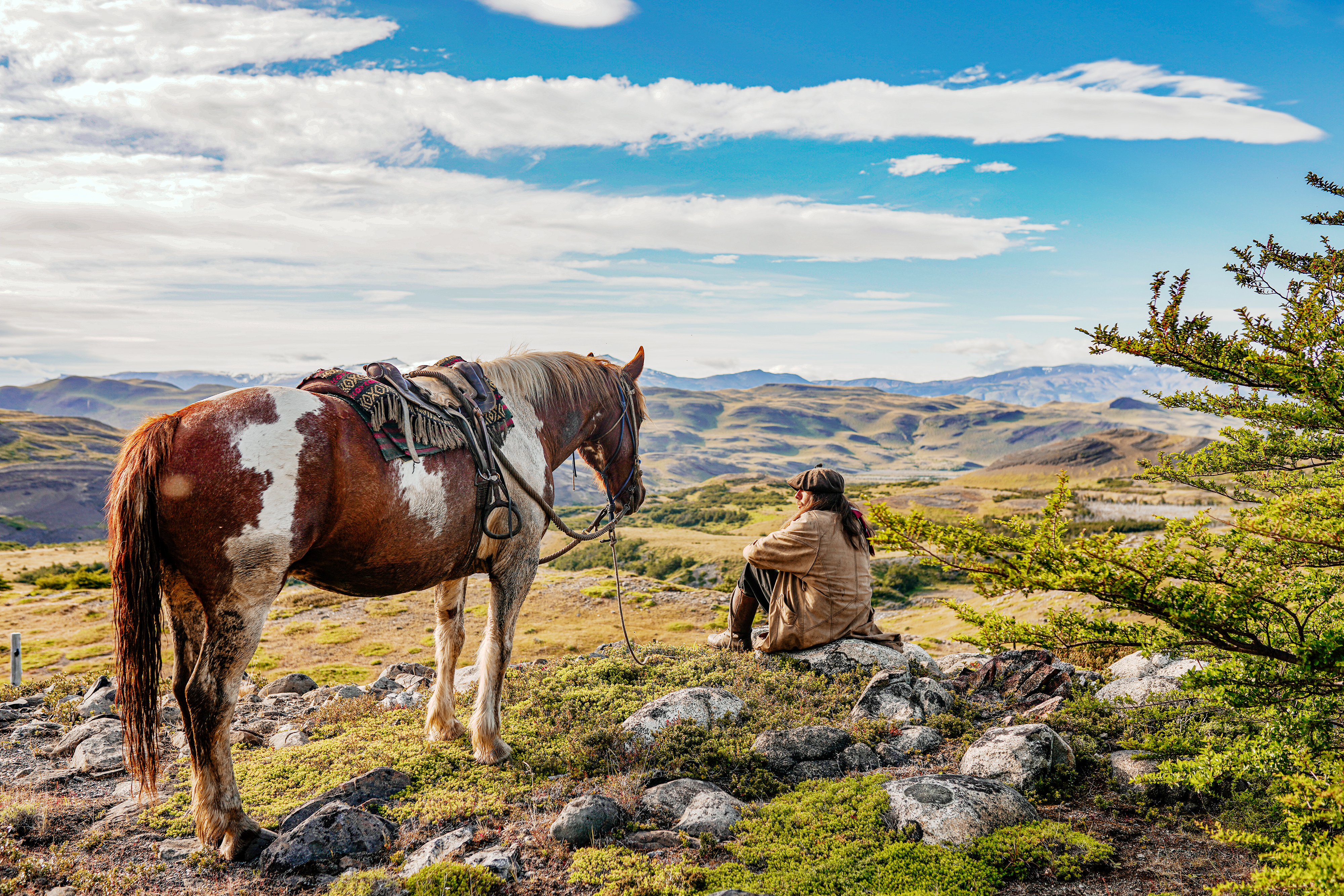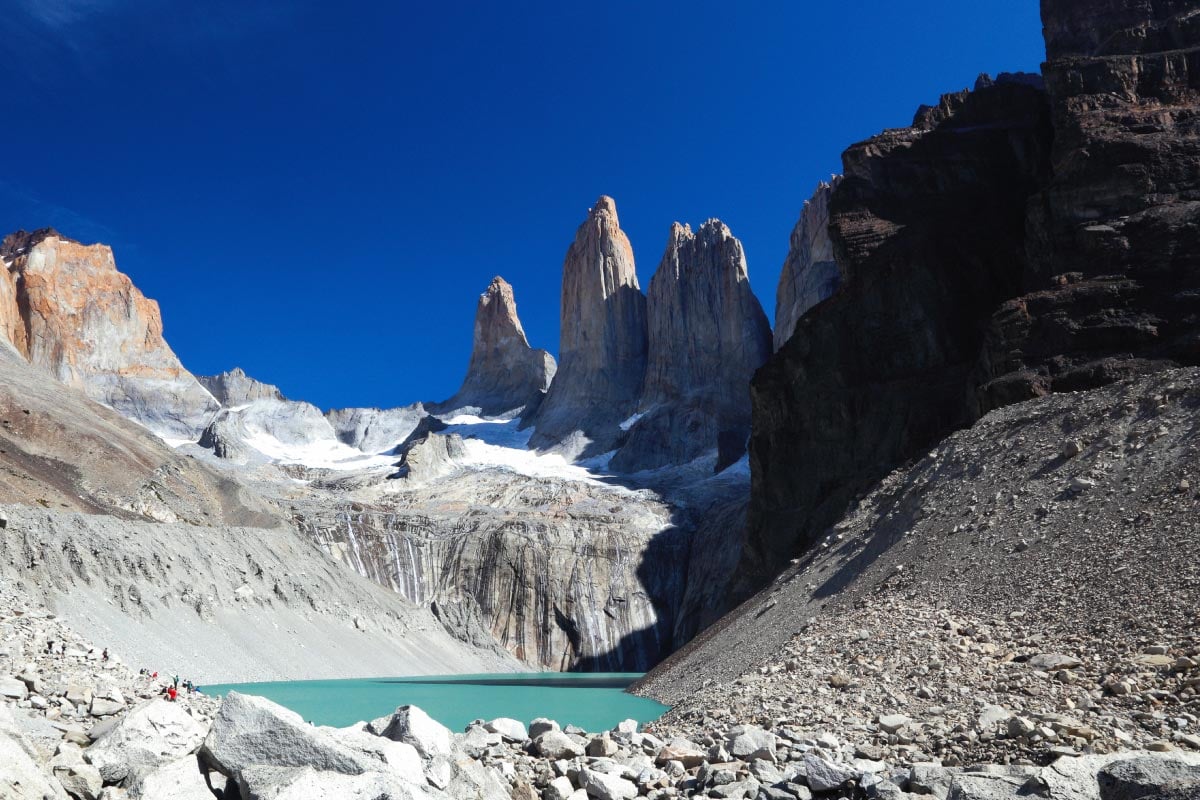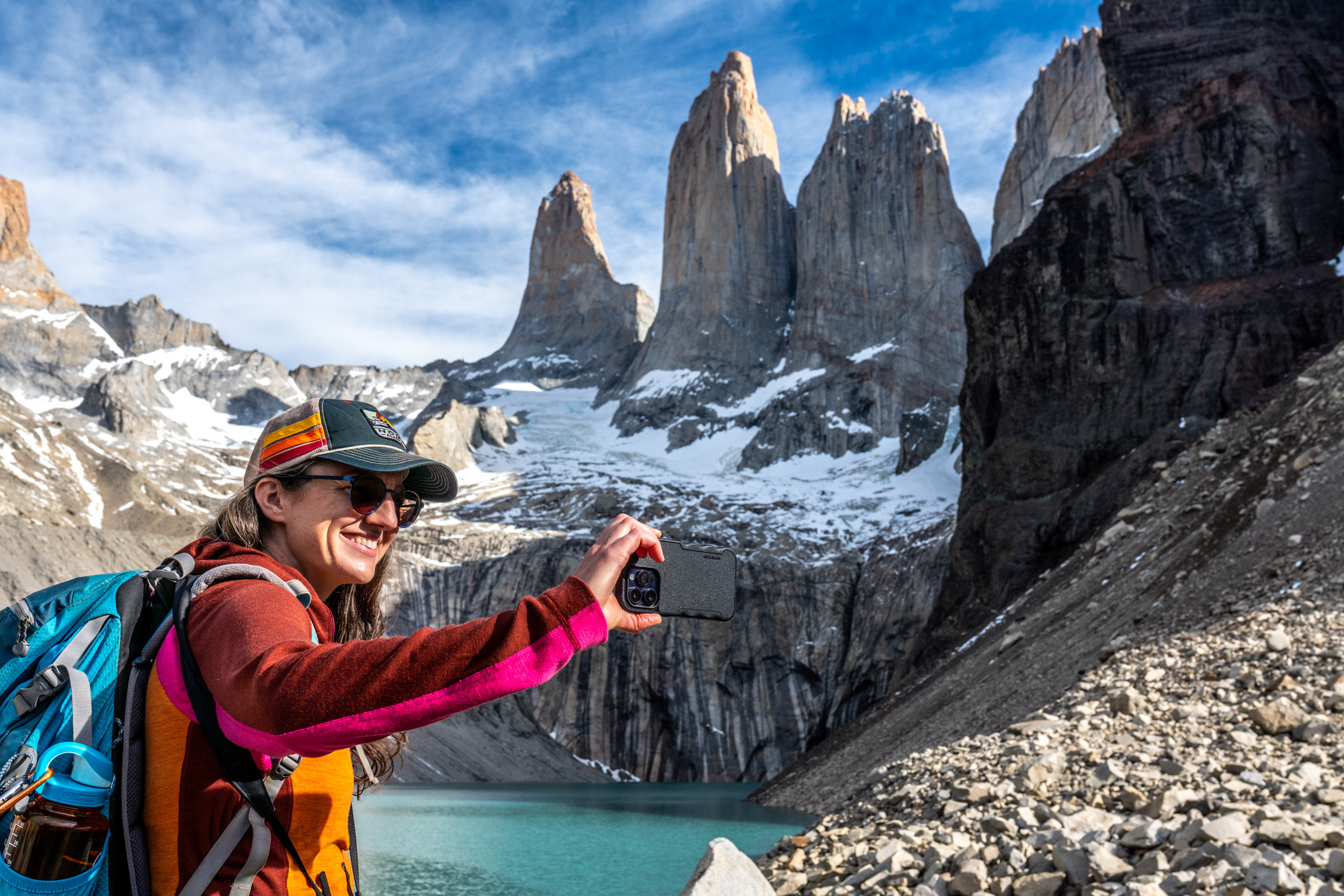Baqueano Means Brave
I spent the morning in what could probably be referred to as an ‘employee lounge’, if all the employees happened to be Patagonia baqueanos taking a break from riding their horses. It was a well-kept barn, more of a baqueano-history showroom. A barn weathered by wind and set in the shadow of the Torres del Paine. The kind of place that smells like saddle leather, damp wool, and the place where stories are told between horsemen over a gourd of mate.
I was there to talk to Jorge Gallardo—the man people around the Las Torres Reserve call a true baqueano. And although he does his share of posing for photos with tourists, his history in the life of a baqueano extends far beyond the staged selfies and tourist marketing events. He was born into his role.
I wanted to learn the true definition of ‘baqueano’. Sure, I could’ve googled “What is a baqueano?” and churned out a summary of knives, mate, and horseback bravado. But I wanted more than a two-dimensional Wikipedia description. I wanted the 3-D human version. So, I sat across from Jorge, who moved with the ease of someone who’s spent more hours in the saddle than in a chair.
He wasn’t sure what I would be asking him, so he sat there trepidatiously waiting for my first question. But I could also tell he was ready to tell me whatever he could.

“Was this always the life you wanted as a kid?” I asked.
“Ever since I was a child,” he said, calm and measured. “My family has always raised animals—sheep, cattle, horses. It’s in the blood. I liked the adrenaline of riding. The silence of the fields. The rhythm of the work. Yes, I thought about going elsewhere, maybe studying. But this…” He gestured to the barn, to the land beyond it. “This is my world.”
We talked about baqueano culture—not the romanticized version, but the lived-in reality. He didn’t talk in metaphors. He talked in facts.
“Being a baqueano means being strong in the cold,” he said. “It means surviving. Not just weather, but everything. But also finding peace in the stillness. Working with animals. Disconnecting from all the noise.”
And here’s the thing: Jorge never tried to mythologize it. He didn’t need to.
When I asked about the difference between Chilean and Argentinian baqueanos, he just shrugged.
“There’s not much difference,” he said. “We’re divided by a fence. That’s it. We live the same way—sacrifice, animals, peace.”
No flags. No speeches. Just the truth as he knows it.

Eventually, I asked a question that had been lingering in my mind since coming to South America.
“So, what’s the difference between me wanting to be a baqueano… and you actually being one?”
“You need an initiation,” he said. “You need to learn. You have to work with animals, understand the land. It’s not something you just decide to be.”
He made a distinction: “A baqueano is born into the culture. An outsider learns it over time.”
So I asked: what does someone have to prove to be considered a baqueano?
He began with a theme he would repeat many times during our talk. “Bravery. But more important than that? The desire to learn. And to care for the animals.”
That was his core truth: if you don’t protect the animals, if you’re not out there in the rain, the wind, the snow, making sure they’re safe, you haven’t earned anything. He told me about the knife every baqueano carries. Not for show, but for survival. If an animal is suffering, you end its pain. If you’re tangled in a rope, you cut yourself free. The knife, like everything else out here, isn’t symbolic—it’s essential.

I asked him about the clothing. The boots. The beret.
He laughed and said, “This outfit? It’s formal. Like a tuxedo. Just for this interview.”
“The clothes don’t matter,” he said. “The boots do. But out here, you dress for the weather. Not for a photo.”
And as he put it, “La ropa no hace al baqueano.”
Clothing doesn’t make the baqueano.
We shifted to the present—his role here at the reserve. He’s not out in the fields the way his family was. His job now is about sharing what he knows.
“Teaching people how to ride, how to work with horses. Helping them understand that Patagonia demands sacrifice. That it’s tough—but it’s beautiful.”
He told me it’s about staying connected. “Feeling the land. Respecting the animals. Living simply, without needing a screen in front of your face.”
Then I asked him why, out of all the people at Las Torres, everyone had pointed to him as the baqueano to speak for the culture.
He hesitated, shy for the first time. “I think it’s about being humble,” he said. “I do my very best to teach what I’ve lived. I’m still young, but I think if I can share even a little… people start to understand. And that means so much to me.”
We sat looking at each other while my brain churned for any type of follow-up questions to bring this story full circle. I turned off my recording device, thinking we were done. Then Jorge added one more thing.
“Baqueano,” he said, “means brave.”

He looked me straight in the eyes. “I think… somewhere in the origins of the word, it comes from bravery.”
He wasn’t offering a dictionary definition. He was offering something older than language.
Later, I looked it up. The earliest use of the word gaucho appears in the early 1800s, during the wars of independence in Argentina and Uruguay. Back then, gauchos were seen as both heroes and outlaws—romanticized in poems, feared by governments. Rebels on horseback. Outcasts in control of their own fate.
That’s an abstract definition of brave, I guess.
But screw all that.
I didn’t come to Patagonia for etymology. I came for a voice. And when a man like Jorge—born into a lineage of mud, wind, and silence—tells me that baqueano means brave?
That’s all I need.
Case closed.

Epilogue:
As I was leaving, I told Jorge that when I first came to South America, I had dreams of working on an estancia and becoming a baqueano. I even spent two months working at Estancia Cerro Negro. After some time, I asked the family if I was a baqueano now.
They looked at each other and said, “You are a baqueanito.”
A little horseman.
Jorge had chuckled throughout our talk, but when I told him that I had earned the title ‘baqueanito’—he laughed hard. The kind of laugh that cuts through any language barrier. That moment meant the world to me. Not only for the wonderful laughter, but because it meant that my strange sense of humor transcends continents as well as cultures.
Because sure, I’m not a baqueano.
But maybe I’m a baqueanito.
I’m a little horseman.
I’m a little brave.
And that’s not too bad.




